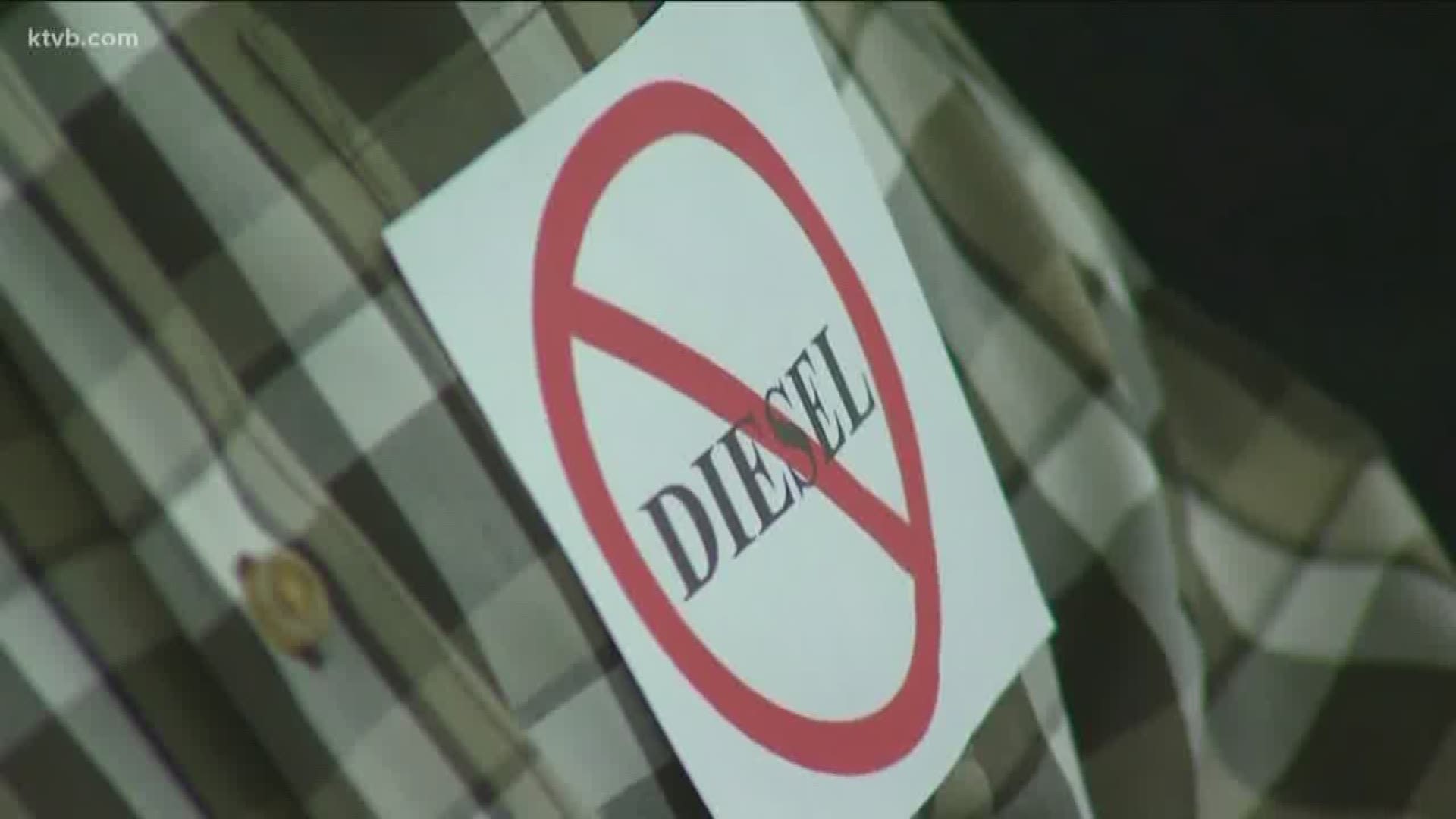BOISE, Idaho — Boise residents were fighting for peace, quiet and affordable housing at City Hall on Tuesday night.
Dozens showed up to the city council meeting in opposition to a proposed truck terminal in their east Boise neighborhood.
The 77,000 square foot truck terminal on S. Eisenman Road was previously denied by the Planning and Zoning Commission, but the developer appealed the decision to the City Council.
The hearing started at 8 p.m., going well into the night, and became heated at times. Mayor Dave Bieter and the Council were even booed at one point by the residents over a conflict of how much time each side was given to present their arguments. One woman even sang her case to the Council during the meeting.
Around 10:46 p.m., after about half an hour of discussion, the Council unanimously voted to uphold the company's appeal, meaning the project can move forward. However, the Council did stipulate the plans be sent back to the design review committee for improvements to better protect Blue Valley residents. The goal is to address health concerns, safety concerns, and any quality of life issues, such as air and noise pollution. In particular, the council would also like the committee to look at a design that orients the project to the north rather than the south.
The residents argued to Council they didn't want the trucking terminal because of concerns of safety, pollution and the possibility the terminal will hurt their property values and quality of life.
Their biggest concern was the harmful fumes coming from the diesel trucks and the terminal, and they feel the buffer zone between the proposed terminal and their homes is not enough.
"They're proposing a 20-foot buffer," Ronald Puccinelli from the Blue Valley Tenant Association said. "It would be the smallest buffer zone in the U.S. I'm not sure Boise wants that as its claim to fame."
Puccinelli said the residents researched 14 other R&L sites and at least 13 of those have buffer zones between the site and homes of 500 feet - well below their proposed distance in this case.
On the other side, R&L Carriers appealed the decision by the Planning and Zoning Commission because the company felt it met all of the conditions the design committee had put into place.
"Each step of the way, R&L has been compliant with the code and has met all of the conditions that PDS has brought back to us," said Jason Mau, a representative for R&L Carriers.
Those conditions include bigger buffer zones, down facing lighting requirements, putting in acoustic barriers and building a higher fence.
The company feels planning and zoning went too far with its requirements, asking for higher standards than state or federal laws would require.
Mau also said the company does not see any negative impacts to the residents.
The plan now heads back to the design committee but will have to be sent back to City Council for final review.

